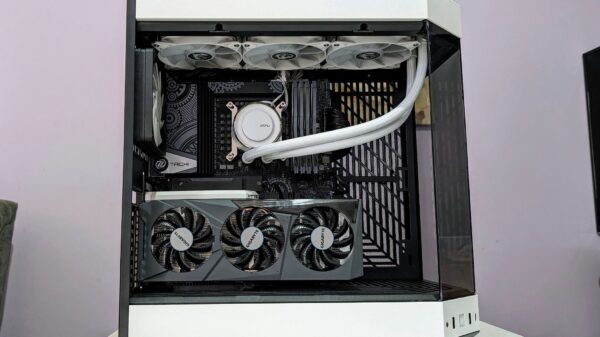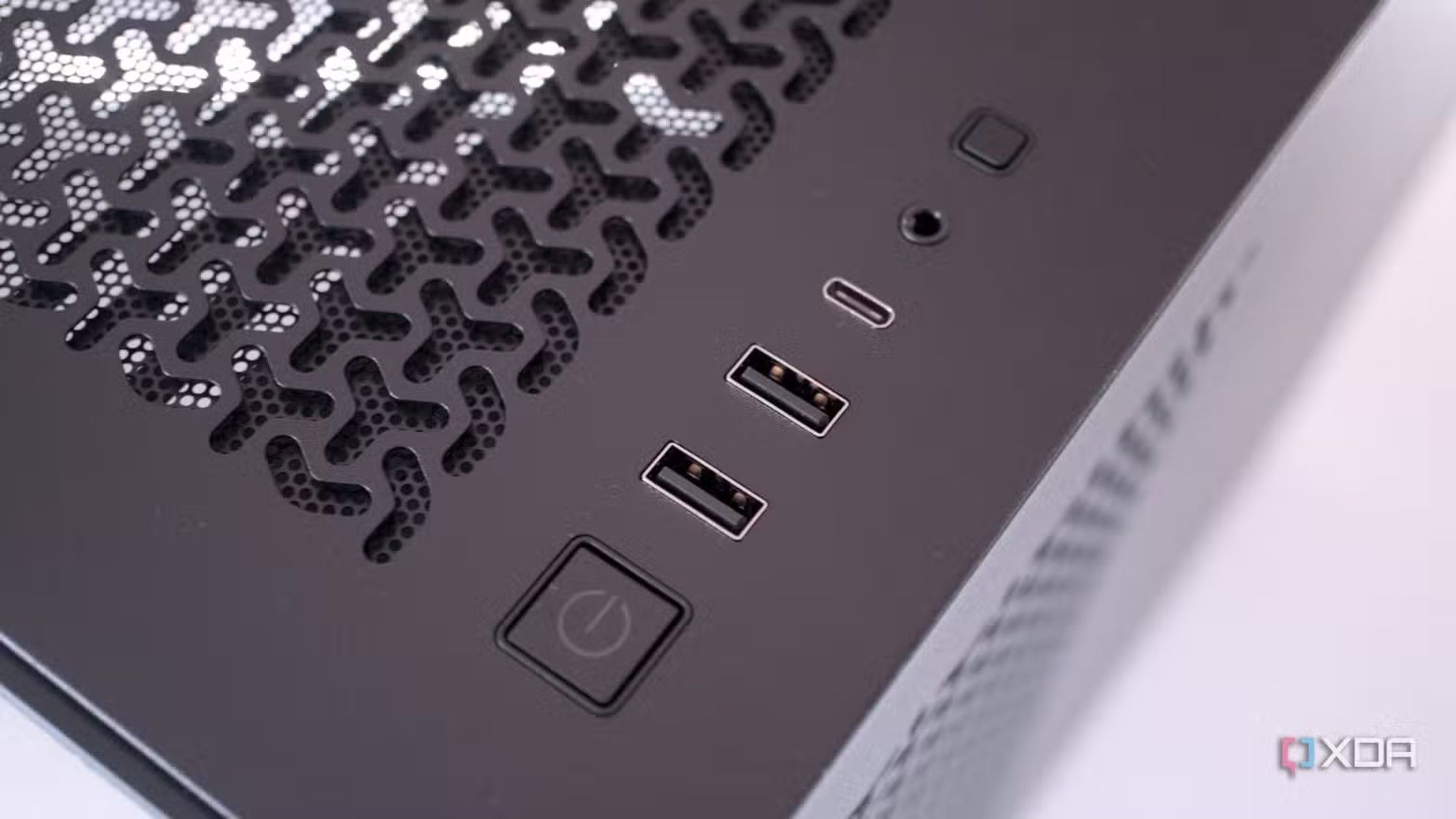URGENT UPDATE: PC users are being warned that relying on your computer’s front I/O ports could significantly hinder performance. New reports reveal that these ports, often seen as convenient, are typically inferior to the direct connections found on motherboards. This crucial information comes as many tech enthusiasts prepare for upgrades or new builds this season.
Experts confirm that the front I/O ports can compromise your experience when using high-bandwidth devices. Whether you’re transferring large files, plugging in high-performance headphones, or connecting external storage, using the motherboard’s ports instead could drastically enhance speed and audio quality.
The front 3.5mm audio jack, for instance, is notorious for degrading sound quality. It connects to the motherboard via long, unshielded cables, exposing your audio signal to electromagnetic interference. As a result, listeners may mistakenly blame their headphones or motherboard for poor audio, when the real issue lies in the inferior front I/O connection.
According to tech analysts, “Using the motherboard’s 3.5mm jack is crucial for optimal audio.” While it may seem tedious to route cables behind your case, the payoff is a cleaner, more immersive audio experience.
Additionally, many users are unaware that their front USB ports are likely bottlenecked at USB 2.0 or 3.0 speeds. For example, the Lancool II Mesh case features USB-A ports maxing out at USB 3.0, whereas newer motherboard models boast USB 3.2 Gen 2 ports capable of transferring data at 10Gbps. This means that connecting an external drive to the front I/O can effectively halve transfer speeds, impacting everything from file backups to gaming performance.
Even front USB-C ports, which often promise high-speed connections, frequently deliver disappointing speeds, typically capping at 5Gbps. In contrast, rear USB-C ports on modern motherboards have begun to offer speeds up to 10Gbps. Those with B550 Aorus motherboards or similar models may find themselves with limited options, as many still lack fast USB-C ports.
As of October 23, 2023, tech enthusiasts are advised to prioritize direct connections to the motherboard whenever possible. The front I/O may serve adequately for low-bandwidth tasks but falls short when it comes to high-performance devices like SSDs, DACs, and VR headsets.
This news is especially relevant as the technology market evolves, with motherboards now supporting speeds of 20Gbps and beyond. For anyone serious about performance, relying on outdated front I/O ports could be a costly mistake.
In summary, tech experts urge: “Always opt for the rear ports when using high-demand peripherals.” Your gaming experience, audio quality, and overall performance could greatly benefit from this simple yet impactful shift. Share this urgent message with fellow PC users to ensure they are also informed about these critical performance insights.
Stay tuned for more updates as we continue to monitor this developing situation in PC hardware performance!






































































